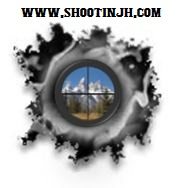Which Caliber is OK for Self Defense?
When it comes to self-defense, choosing the right caliber for your firearm is a critical decision. This article will delve into the technical aspects that influence the selection of an appropriate caliber for self-defense purposes, examining factors like stopping power, recoil, ammunition availability, and overall effectiveness.
Stopping Power
Stopping power is often the most emphasized factor in the debate over the best self-defense bullet size. It refers to a bullet’s ability to incapacitate an assailant. Generally, larger calibers such as .45 ACP and .40 S&W are known for their stopping power, owing to their larger mass and the ability to deliver more energy upon impact. However, this does not necessarily mean they are always the best choice for every individual.
Recoil
Recoil, or the backward force experienced when firing a gun, is a significant factor in handling and accuracy. High-recoil rounds can make subsequent shots slower and less accurate, especially for shooters with less experience or strength. For example, while a .45 ACP has excellent stopping power, its recoil is also higher compared to smaller calibers like the 9mm Luger. The 9mm offers a good balance between stopping power and manageability, making it a popular choice among law enforcement and civilian defenders alike.
Ammunition Availability and Capacity
Ammunition availability is another critical consideration. Popular calibers like 9mm, .40 S&W, and .45 ACP are widely available, making it easier to find and purchase ammunition. Additionally, magazine capacity can be a decisive factor; smaller calibers like the 9mm typically allow for higher capacity magazines, providing more shots before needing to reload.
Effectiveness
The effectiveness of a self-defense caliber also depends on bullet design and performance. Advances in bullet technology have improved the effectiveness of smaller calibers, narrowing the performance gap with larger calibers. Modern 9mm hollow point rounds, for example, can offer stopping power comparable to larger calibers while allowing for higher magazine capacity and easier recoil management.
Conclusion
The choice of caliber for self-defense is influenced by a balance of stopping power, recoil, ammunition availability, and effectiveness. While larger calibers like .45 ACP have notable stopping power, the 9mm Luger stands out for its combination of manageability, capacity, and effectiveness, particularly with modern ammunition. Ultimately, the best caliber for self-defense is the one that the individual can shoot accurately, consistently, and confidently. Training and practice with the chosen firearm and caliber are paramount to ensure effectiveness in a self-defense situation.
Check out this great article brought to our attention by Chris Butler at Ludus Tetonia, experts in personal training in Jackson Hole Wyoming.
https://www.buckeyefirearms.org/alternate-look-handgun-stopping-power



